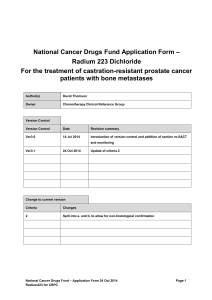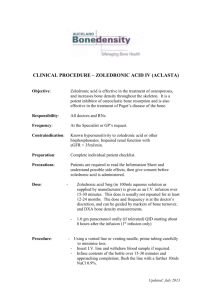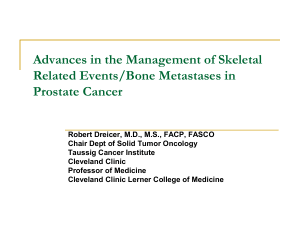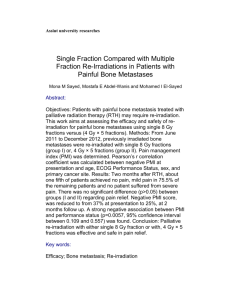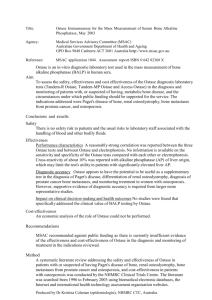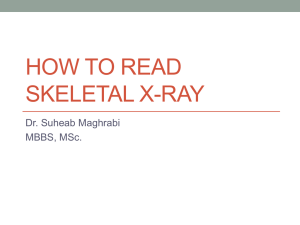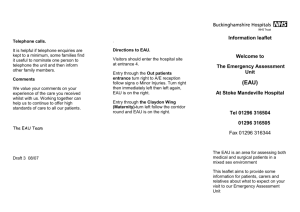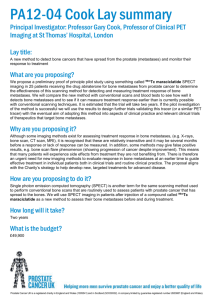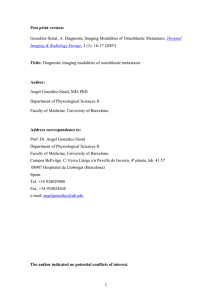- EAU Annual Congress
advertisement
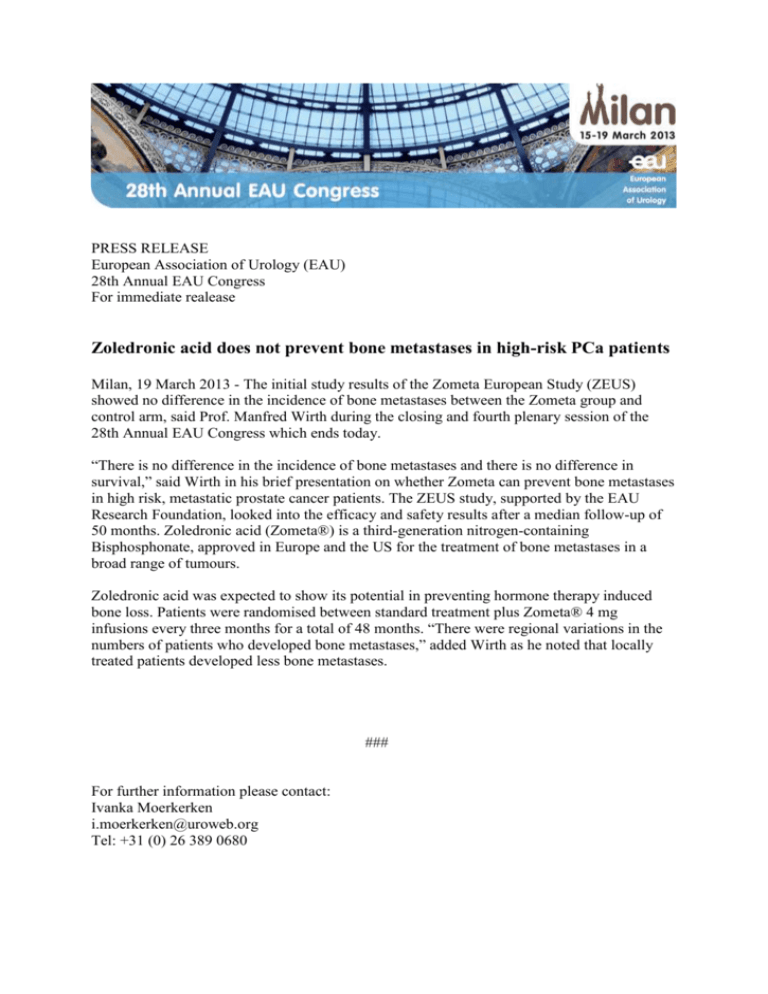
PRESS RELEASE European Association of Urology (EAU) 28th Annual EAU Congress For immediate realease Zoledronic acid does not prevent bone metastases in high-risk PCa patients Milan, 19 March 2013 - The initial study results of the Zometa European Study (ZEUS) showed no difference in the incidence of bone metastases between the Zometa group and control arm, said Prof. Manfred Wirth during the closing and fourth plenary session of the 28th Annual EAU Congress which ends today. “There is no difference in the incidence of bone metastases and there is no difference in survival,” said Wirth in his brief presentation on whether Zometa can prevent bone metastases in high risk, metastatic prostate cancer patients. The ZEUS study, supported by the EAU Research Foundation, looked into the efficacy and safety results after a median follow-up of 50 months. Zoledronic acid (Zometa®) is a third-generation nitrogen-containing Bisphosphonate, approved in Europe and the US for the treatment of bone metastases in a broad range of tumours. Zoledronic acid was expected to show its potential in preventing hormone therapy induced bone loss. Patients were randomised between standard treatment plus Zometa® 4 mg infusions every three months for a total of 48 months. “There were regional variations in the numbers of patients who developed bone metastases,” added Wirth as he noted that locally treated patients developed less bone metastases. ### For further information please contact: Ivanka Moerkerken i.moerkerken@uroweb.org Tel: +31 (0) 26 389 0680 Notes to editors About prostate cancer Prostate cancer is still a major health concern in the Western male population. It is the most common male malignancy in most European countries with 346,000 new cases diagnosed each year in Europe. Research efforts have increased steadily over the past two decades. About the European Association of Urology The EAU represents the leading authority within Europe on urological practice, research and education. Over 16,000 medical professionals have joined its ranks and help to create forward-looking solutions for continuous improvement, professional growth and knowledge sharing. The EAU delivers training, stimulates research and broadcasts information. The EAU’s scientific publications encourage discussion and its expert recommendations guide urologists in their every-day practice.
